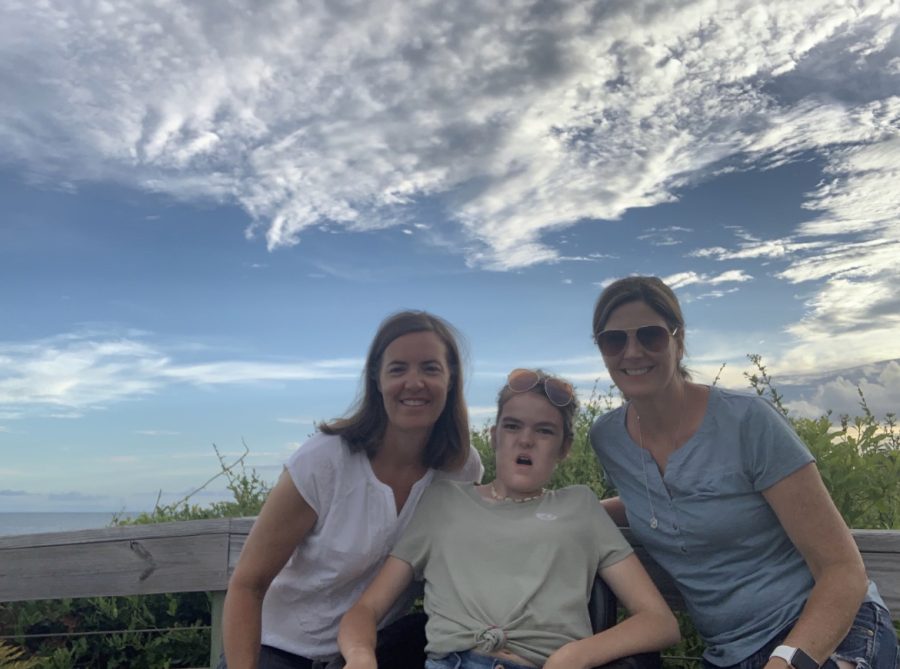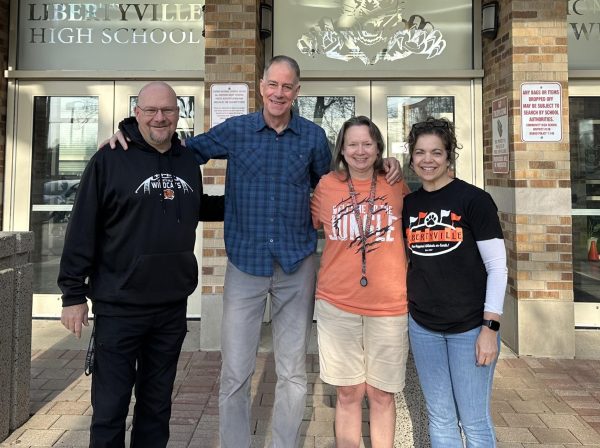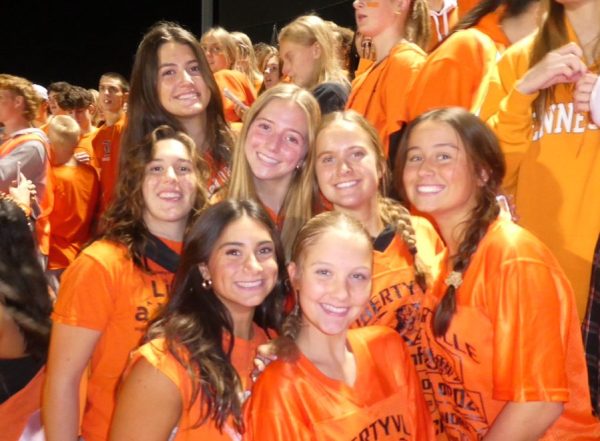Family is Family: Students with Varying Types of Households
Sophomore Kate Mitchell is an only child with two moms. Even though it may be seen as a strange, Mitchell sees her family just like any other.
Our society has progressed past the notion that a normal family equates to a nuclear family. In fact, according to 2020 U.S. Census Bureau, only 40% of all families are nuclear families with two married parents and children. Some varying households include those with extended family, single parent, divorced, and same-sex marriages. Each different type of family has its own dynamic, its own beauty, as well as its unique struggles.
Kate Mitchell: Two Moms
Sophomore Kate Mitchell lives as an only child with her two mothers. One of her moms works in business and the other works as a teacher.
Although one might view her situation as unique, Mitchell does not see her family as anything other than just her family.
“People expect it to be different,” Mitchell said. “But it really isn’t. They are my moms, and that’s that.”
Just like some other parents, Mitchell’s moms have personalities that contrast each other. One of them is more structural while the other is more “go with the flow”. But ultimately her parents’ character traits, in her opinion, complement each other.
“I would say they are very different,” Mitchell explained. “…However, these differences work well together and are both very useful in [varying] ways and situations.”
Her moms are always there for her when she needs them: whether it be school-related, or for just a little pick-me-up. They are always supportive of her, no matter what. Mitchell appreciates their accepting outlook on life.
“They always see people for who they are and don’t judge others,” Mitchell said.
Mitchell recognizes that her family is “different” in that she has grown up with a disability in addition to having two moms. However, because her moms have always been at her side, having two moms never crossed her mind as something out of the ordinary.
“I mean, there’s always people who stare, but I wouldn’t say [having two moms] made me feel any different,” Mitchell articulated.
Monica Jacksack: Divorced Parents
Freshman Monica Jacksack and her younger brother live with their father full time. Earlier this year, Jacksack’s mother moved out, and her parents got divorced. Jacksack tries to visit her mother who lives an hour and a half away, at least every other week. Her older brother lives with her mom, and her older sister is in college.
Her mom and dad are still in contact, and Jacksack enjoys spending time with her mom when she can. However, Jacksack feels she has a closer relationship with her father.
“My dad is much more in charge of the stuff that happens in my life,” Jacksack expressed. “He mostly takes care of me rather than my mom.”

The period before her parents’ divorce, as well as the overall process of her parents getting divorced proved to be the most difficult for Jacksack.
“When my mom decided to leave and we had to pack up our stuff, that’s when it really hit me,” Jacksack said. “I was like, oh my god, I’m not going to see her as much, and she’s not going to be there for my dad.”
At home, she has spent an increasingly large amount of time with her younger brother, and she has felt her responsibilities as an older sister shift.
“I feel like I’m trying to help as much as I can,” Jacksack articulated. “…My dad is busy with work and things can be tough, so I make sure to take care of my brother. We’ll make dinner together, and we always do the chores.”
But ultimately, her parents’ divorce was almost a relief for Jacksack. Her shifted family structure ended up strengthening her connections with both her parents and her siblings.
“I actually have a better relationship with my parents, and all of my siblings,” Jacksack said. “Especially my older brother because he is with my mom. Every time I see him, time feels more valuable.”
Payton Howard: Extended Family
Freshman Payton Howard, along with her older sister Logan Howard, who is a sophomore, lives with three of her cousins and her parents. Her family took in her cousins Connor (age 15), Gavin (age seven), and Mason (age five) in early 2018.

Howard’s cousins needed a place to live because her aunt was not in a position capable of supporting both herself and her children. After temporarily staying with her grandparents, Howard’s cousins moved into her household.
At first, switching from being the youngest child all her life to becoming a middle child proved to be a big change for Howard.
“All of the attention on you is on you when you are the youngest,” Howard articulated. “It’s different being a middle child. [For instance,] I have to help them out before I can help myself. And I have to show a [good] example.”
Now, as a couple years have gone by, Howard no longer thinks of her cousins as just cousins. The Howards eat dinner together as a family, and share their roses (something positive that happened that day, buds (something to look forward to in the future), and thorns (something negative).
“The dynamic has changed, and there is more of a sibling attribute to it,” Howard explained. “Mason has started calling my mom, ‘mom’. I have gone into the role of taking care of them when my parents aren’t home – just like a good big sister.”
Prior to her cousins moving in, Howard felt that everything was quiet, and sometimes even lonely. But with her cousins in the house, especially now during the holidays, the Howard household is full of liveliness.
“On Christmas, the little kids just get so happy and it just reminds me of when I was younger,” Howard said. “It’s like I get to experience that joy all over again.”







